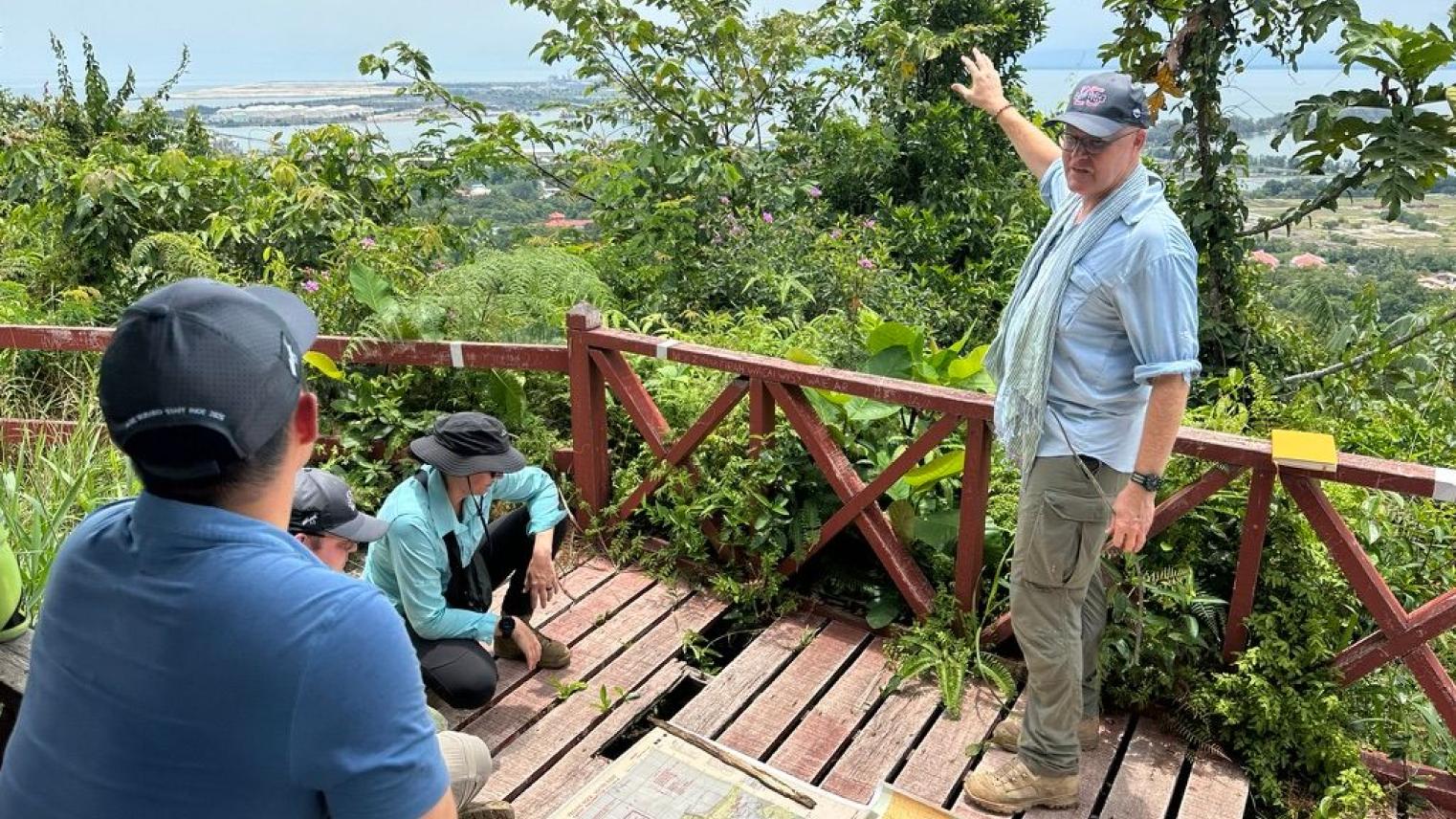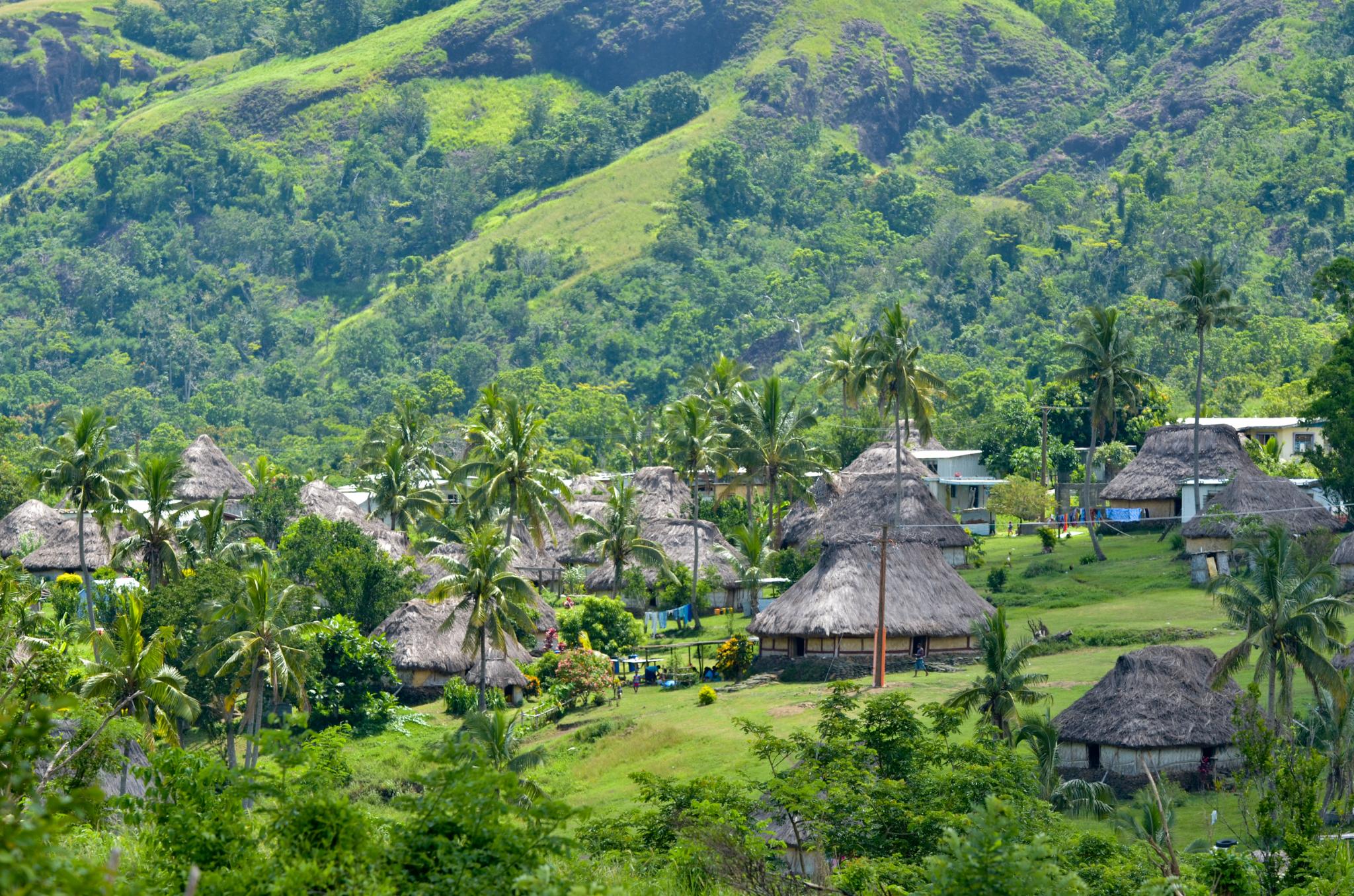Advancing Australian Army professional military education in Borneo

2025 marks the 80th anniversary of the end of the Second World War. It also marks the 80th anniversary of one of the largest military operations planned and conducted by Australia’s armed forces – the reoccupation of Borneo.
In March this year, SDSC’s Associate Professor Garth Pratten accompanied an Australian Army Research Centre (AARC) staff ride to lend his historical expertise and experience in the region, to the study of the Borneo operations by a small group of Australian Army officers and soldiers.
Experiential learning
‘Staff ride’ is a military term used to describe an experiential learning activity that uses historical events and a visit to the environment in which they occurred, as a medium for examining the dynamics of warfare. The March staff ride was the fourth ADF activity in Borneo for which A/Prof Pratten has provided his historical expertise, derived from his ongoing research on the operations of 1945. His research also provided the foundation for the ANU ‘Exploring Oboe’ field study tour conducted as part of SDSC’s Master of Strategic Studies program in 2017 and 2018.
Amphibious landings and special operations in the interior
While previous study tours/staff rides have examined the whole Borneo campaign, this iteration focused entirely on the operations conducted in what was collectively known in 1945 as ‘British Borneo’ – today the Malaysian states of Sabah and Sarawak, the Federal Territory of Labuan, and the Sultanate of Brunei Darussalam. Beginning on 10 June 1945 with two large-scale amphibious landings on Labuan and the shores of Brunei Bay, the operations also involved three smaller-scale amphibious landings, ground combat supported by both air and naval forces, and civilian relief and reconstruction activities.
The scope of this year’s staff ride was extended to embrace not only these conventional operations around the Borneo coast and its hinterland, but also the special operations conducted in Borneo’s interior. These saw over 100 operatives inserted by parachute to gather intelligence and recruit guerilla forces from among the local population.
Tropical and archipelagic environments
With the concept of littoral manoeuvre in maritime Southeast Asia and the Pacific underpinning the reorientation of the Australian Army following the 2023 Defence Strategic Review, the Borneo campaign provides an ideal case study to consider factors affecting military operations in tropical and archipelagic environments. In particular, the extensive use of small craft to move personnel and supplies along Borneo’s coastline and rivers, prompted participants to reflect on the future employment of the new watercraft being acquired for the Army. The broader strategic and operational setting also encouraged discussion of the imperatives driving strategy formulation, the practicalities of operating as part of a larger coalition force, and the orchestration of conventional and special operations to achieve common objectives.
Littoral operations in a small-state context - highly relevant today
Following the conclusion of the staff ride, A/Prof Pratten returned to Brunei Darussalam as a guest lecturer at the Royal Brunei Armed Forces College. Here he delivered a day-long program to the Command and Staff Course on the Borneo campaign and its relevance to littoral operations in a small-state context, demonstrating that even 80 years on the Borneo operations still offer many insights to Australia and its regional partners.


